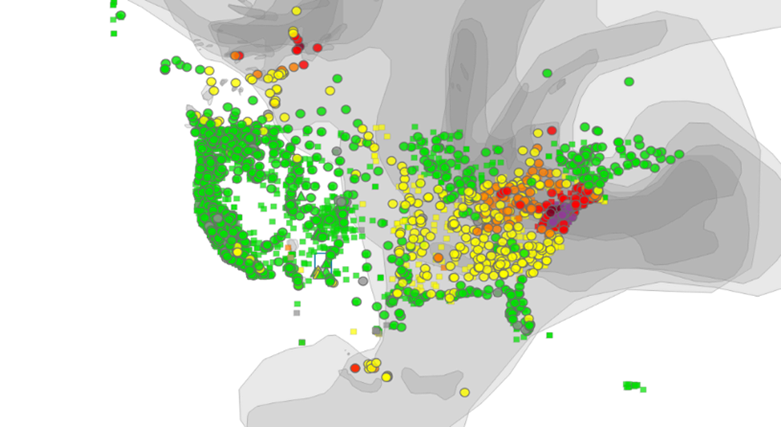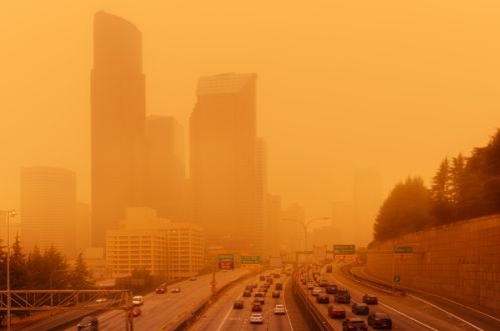DNREC Needs to Establish Wildfire Smoke Air Pollution as an Exceptional Event
By David T. Stevenson, Director
Center for Energy & Environmental Policy
June 8, 2023
An extended period of hazardous air pollution caused by wildfire smoke from Canada jeopardizes Delaware's status as being "in attainment" with the National Ambient Air Quality Standards. Being in attainment is an economic development advantage as permits for new and expanding manufacturing ventures can be issued.
The smoke leads to high levels of ozone and fine particle pollution over an extended period. Since these pollutants are measured on a three-year average, bad days like this week can hurt Delaware's standing for the next three years.
The U.S. Environmental Protection Agency (EPA) provides a system to have these high-level days expunged as "Exceptional Events." Delaware's Department of National Resources & Environmental Control (DNREC) should apply for this status with the EPA. However, if history repeats itself, DNREC has neglected to ever do this in the past. Let's hope history doesn't repeat itself!
DNREC has issued air quality alerts since June 1st, and they are likely to continue for an indeterminate time:
"Wildfires in eastern Canada are emitting particulate matter into the atmosphere, affecting air quality throughout the northeast, including in Delaware. The U.S. Environmental Protection Agency provides an Air Quality Index with color codes to inform the public about conditions and how to avoid health effects associated with poor air quality. DNREC has declared a Code Red Action Day for particulate matter for Wednesday, June 7, and Thursday, June 8. These alerts warn of unhealthy particle pollution levels. DNREC also warned effects from the smoke may at times cause purple conditions, meaning the air quality is very unhealthy."
Federal wildfire smoke maps are issued daily like this one for June 8th:

The EPA issues daily summaries from air quality monitoring stations for all states. We have seen higher readings than the ozone National Ambient Air Quality Standard (Standard) and for fine particles (PM2.5). For instance, four air monitoring stations in New Castle County, DE, had ozone readings as high as 85 ppb on June 2nd compared to a standard of 70 ppb. Additionally, eight air monitoring stations covering the entire First State had high fine particle readings every day since May 30th reaching as high as 178.8 µ/M3 on June 7th compared to a Standard of 12 µ/M.

